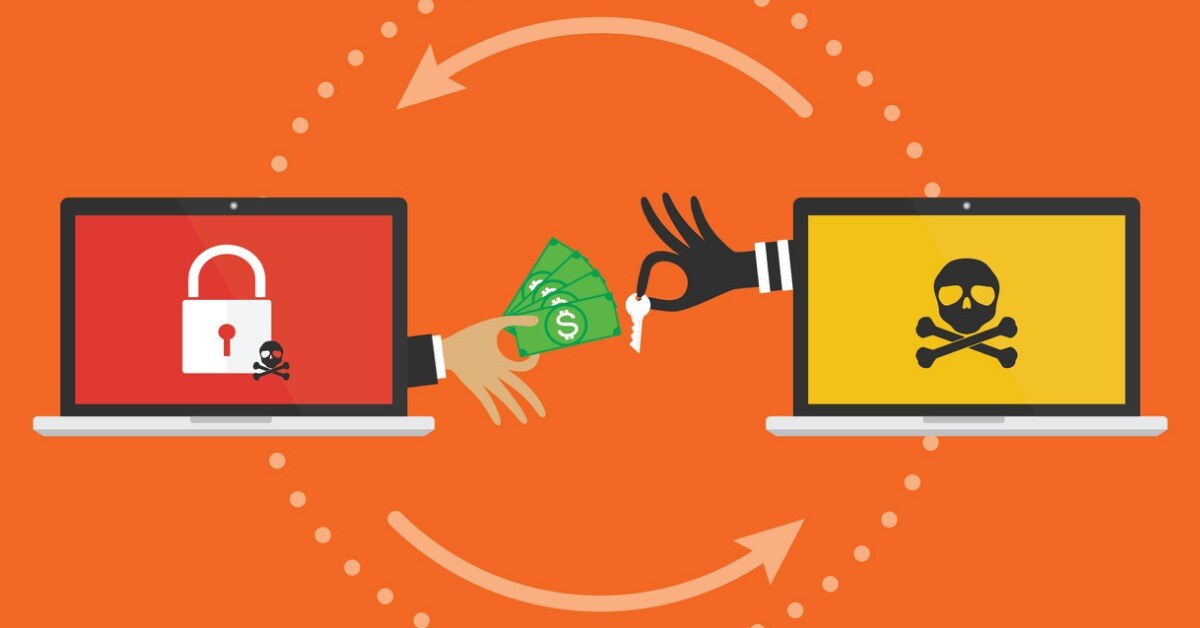Industries We Serve
World Class IT Support & Service
Real People. Right Now.
About Locknet® IT Services
From the first hello, the Locknet® team is dedicated to serving you and your needs.
Real People. Right Now.
From the first hello, the Locknet® team is dedicated to serving you and your needs.


Up to 75% of small business leaders say they would pay ransom to cybercriminals to get their data back, when they should, in fact, be looking into ransomware removal…or ransomware protection before hackers extort them. The reasons leaders would pay for their data are easily understood, but there are even more reasons not to send money to these hackers.
Sadly, ransom attacks are increasing exponentially, and victims of ransomware are paying more money to get access to their encrypted files again. But, just because you pay a ransom doesn’t mean you’re guaranteed to get your files back. In fact, an article on Forbes.com, “Why You Should Never Pay a Ransomware Ransom,” says only 19% of victims who pay a ransom for the return of their files actually get them back.
Your best defense against cyberattacks and hackers who encrypt your files and hold the unlock key for ransom, is, of course, prevention. By working with cybersecurity experts, like the professionals at Locknet® Managed IT, you can rest assured that you have a team working to protect your data, whether you’re at the helm of a small, medium, or large business in Wisconsin, Minnesota, or Iowa. We’ll review your IT environment and examine your security posture and risk exposure. Together, we’ll put together a slate of products and services that help keep your business safe and secure from hackers and cybercriminals.
But what if you don’t have sufficient ransomware protection, and you do get hacked? Here are five reasons you should never pay ransom for your data.
Even the FBI cautions businesses against paying the ransom if they fall victim to a cyberattack. With attacks becoming more common and even more complex, you may feel tempted to pay. However, the FBI says paying ransom only encourages hackers to continue their misdeeds.
Decryption is available for some ransomware, so depending on the nature of the attack against your business, experts, like the professionals at Locknet®, may be able to help. At the first sign of an attack, reach out to security experts, instead of paying a ransom.
Some hackers use malicious software that is fake ransomware, and paying the ransom may have no bearing on future access to your files. It may look real, and it can be terrifying, but resist the urge to pay the ransom. You may be able to access your files without it. Again, IT experts at Locknet® can help determine whether the ransomware is a real threat, and the best way to proceed.
After they get your money, hackers know you have the means and ability to pay and may return later to demand even more. After all, what’s to prevent them from doing so? There are many stories of businesses that pay a ransom, only to have cybercriminals demand more money, sometimes multiple times.
When you pay a ransom, not only does it encourage hackers to continue hacking, but it also allows them to buy top-of-the-line equipment and software to strengthen their illicit efforts. Refuse to pay, and their bank accounts can run dry…not to mention, you’re eliminating the reason for the cybercrime in the first place.
The good news, according to the Forbes.com article, is that up to two-thirds of cybercrime victims are not paying a ransom. Even better, among them, 86% recovered their files on their own because they had appropriate backup measures in place.
Do you have the right level of security protection and backup/recovery solution in place for your business? The experts at Locknet® Managed IT are here to help. Together, we can put into place the ransomware protection you need, or worst case scenario, help you with ransomware removal. Contact a Locknet Account Executive at 844-865-4968 for a review of your company’s data security and protection needs. We’ll make sure you’re not just safe. Locknet® safe.
Cybersecurity

Onalaska, WI Waterloo, IA Wausau, WI Eau Claire, WI Burnsville, MN
You are now leaving locknetmanagedit.com. Please check the privacy policy of the site you are visiting.